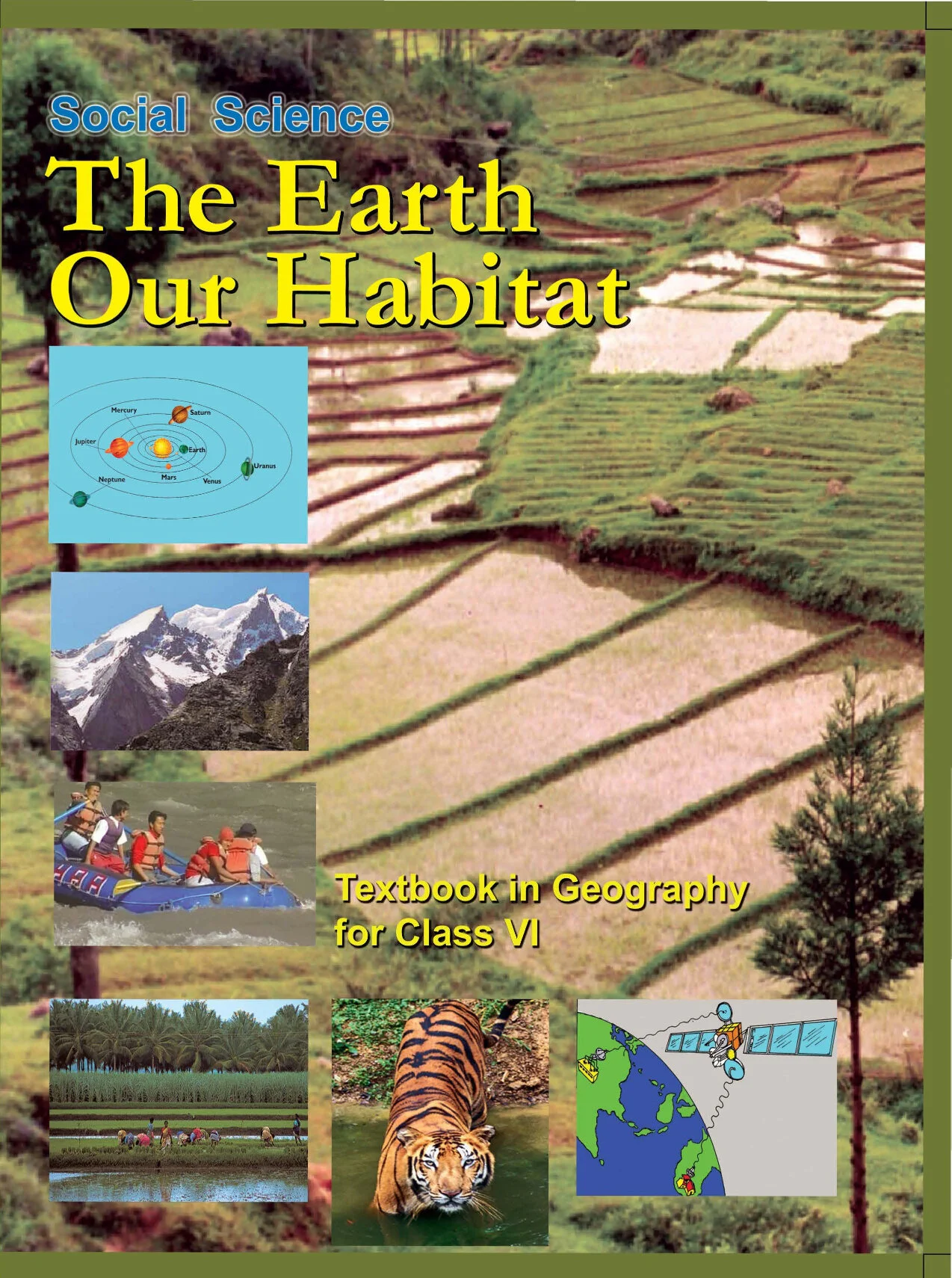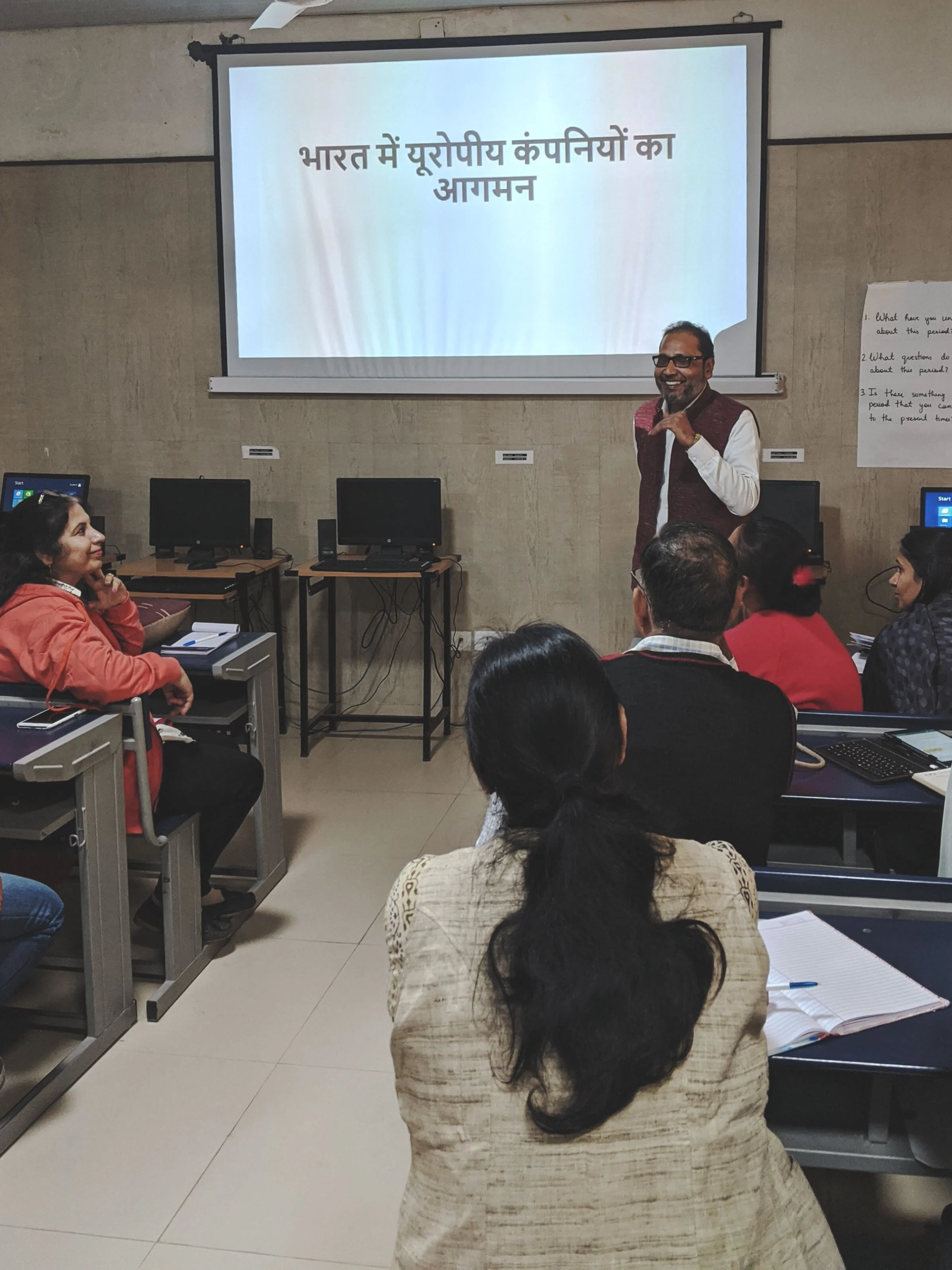TFC has been working with 25-28 mentor teachers since 2017 determining how to prepare teachers in the Delhi Government School System to provide a rigorous foundation in the social science subjects, focusing on classes 6 to 10.
The NCERT textbooks provide the basis for a deeper and wider inquiry into the content to expand on or explore the strands that are inherent in the topics. In our view, Social Science subjects, History, Geography and Social & Political Life provide a rich learning ground for students to make sense of the complex realities that they face every day.
The mentor teacher program is an excellent place for our focus because:
It presents an opportunity to reach the entire system - 1030 plus schools – over time
The Mentors are experienced teachers from the school system, and they know what works and what doesn’t.
More importantly, they can design what will work better and improve on their effort iteratively.
Being from the system, they have greater credibility with their colleagues and the administration.
They can also help the administration bring about necessary changes to the system.
A cadre of qualified and experienced teacher educators with credibility with teachers could be a game-changer for Social Science teaching in the school system.
TFC experimented with different strategies to design an acceptable and enabling approach that would yield a powerful mentor development program before arriving at the current system of working in core mentor groups for History, Geography and SPL.
The mentors identified their most critical need: that their understanding of Social Science concepts had many gaps and therefore they were unable to teach with confidence. This is also the greatest need in the field.
Teaching Social Science in a Modern Democracy
Our Work with Subject Groups
-

Geography
Rather than present Geography topics as a list of facts to be memorised, we identify the key concepts to be understood and what is to be understood about each concept. Then we design an appropriate set of queries, supported by the appropriate resources to further the inquiry. The facts presented are then support for building an understanding of the concept in the context of the inquiry.
The team uses a ‘trigger’ such as a PowerPoint presentation, article or video as a basis for a discussion. This is an active process for all participants as they dig deeper into the concept, asking questions, exploring different ways of looking at the topic, and articulating their new understanding.
-

Social and Political Life
The initial focus is on helping learners initiate a process of inquiry into the topics on their own. This opens up avenues for each mentor to do their own study of the topic and come together to share with the team. The team then builds further on the knowledge that has been gathered individually. We try to introduce activities that make this process more relevant for everyday life. The possibility of replicating these activities in the classroom is also considered while designing. Mentors articulate all the questions they have at the beginning of each new topic and we ensure their involvement in the inquiry design at each turn.
-

History
The biggest hurdle to achieving concept clarity in History lies in the nature of the subject. There is a need for wide and deep reading, especially of primary sources, along with correlation of perspectives to arrive at some understanding of the topic. We begin the process by providing a base document which is a compilation of essential concepts from a few authentic sources, and put it up for discussion. The discussion builds knowledge with additional inputs provided by experts and clarifications emerging from queries of mentors. All of this is then incorporated into a comprehensive PPt along with other supporting material, for the use of teachers preparing to teach the topic in their classroom.

